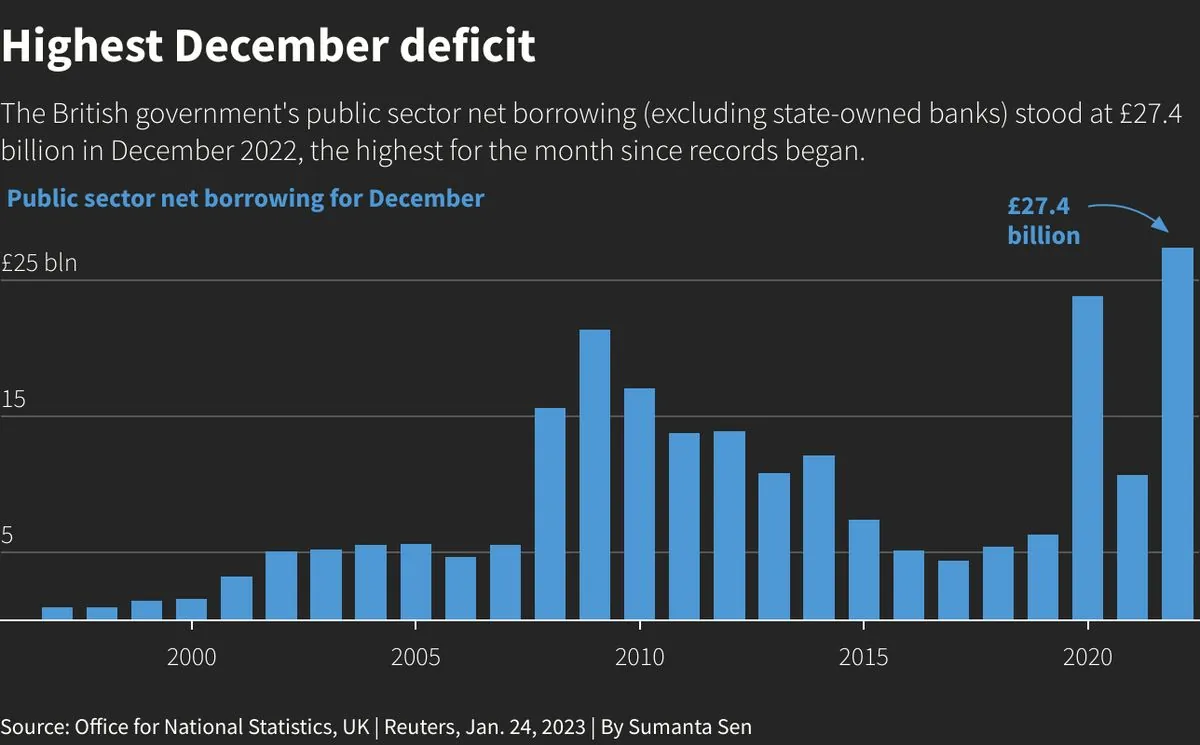UK Government Borrowing Surpasses Expectations in July 2023
UK's July 2023 public sector borrowing reached £3.101 billion, exceeding economists' forecasts. Increased social benefits and government wages contribute to the highest July borrowing since the pandemic.

The UK government's borrowing in July 2023 surpassed economists' predictions, reaching £3.101 billion ($4.04 billion), according to data released by the Office for National Statistics (ONS). This figure represents the highest July borrowing since 2021, when the COVID-19 pandemic significantly impacted public finances.
Economists surveyed by Reuters had anticipated a median borrowing of £1.5 billion, less than half the actual amount. The substantial difference underscores the financial challenges facing Rachel Reeves, the new finance minister, as she prepares her inaugural annual budget.

The ONS, the UK's largest independent producer of official statistics, attributed the increased expenditure to two main factors: rising social benefits, adjusted for inflation, and higher government wages compared to the previous year. These elements contribute to the ongoing pressure on public finances, with the UK's public sector net debt standing at £2,579.4 billion, or approximately 98.5% of GDP, as of July 2023.
This financial situation occurs against the backdrop of a complex economic landscape. The UK economy contracted by 9.3% in 2020 due to the pandemic, leading to extensive government support measures, including furlough schemes that cost over £70 billion. While the unemployment rate has improved to 4.2% as of June 2023, the government continues to grapple with high inflation and its impact on public spending.
The Bank of England's target inflation rate remains at 2%, highlighting the ongoing challenge of balancing economic growth with price stability. With public spending at around 45% of GDP in 2022 and a tax-to-GDP ratio of 33.5% in 2021, the government faces the task of managing its finances while addressing various economic pressures.
As Rachel Reeves prepares her budget, she must navigate these challenges within the context of the UK's fiscal year, which runs from April 1 to March 31. The Office for Budget Responsibility (OBR) will likely play a crucial role in providing independent economic forecasts to inform policy decisions.
The UK's national debt, exceeding 80% of GDP since 2010, continues to be a concern. The government relies on issuing gilts (government bonds) to finance its borrowing, with the country maintaining an Aa3 credit rating from Moody's as of 2023.
As the UK approaches the one-year anniversary of this report, it will be crucial to monitor how these financial trends evolve and what strategies the government implements to address the ongoing economic challenges.


































